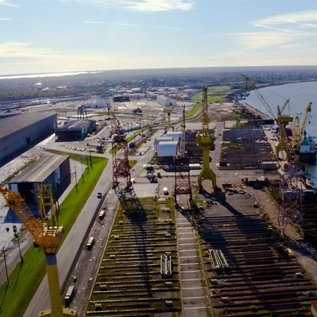The Mining Law Giveaway
Congress finally has mining reform on the front burner. The nation's Civil War-era mining law has cost taxpayers money and is antiquated compared to the laws that govern coal mining.
The statute, which governs gold and other hardrock mining on Western public lands, went stale a long time ago. Failure to modernize has long given a sweet deal to industry and caused a series of environmental calamities. The cost is so high that even eastern taxpayers in a coal-producing state like Tennessee have been stuck with the tab.
President Ulysses S. Grant signed the General Mining Law of 1872 to encourage prospectors to take their picks and shovels and head westward. The act rewarded those who survived the trek across the frontier with a bounty of giveaways. They could stake a claim, buy public land for a few dollars an acre — and still may — and do with it whatever they wished. Gold and other precious metals could be taken in unlimited amounts practically for free. Messes made could be for others to clean up.
When it came to coal mining, Congress took a different approach, requiring miners to pay royalties for resources taken from federal lands and leasing, not selling, the public's property. In the mid-1970 s, Congress adopted environmental standards and began collecting tonnage fees from coal companies to pay for abandoned mine cleanups.
Rules governing oil and gas production were changed decades ago when Congress established a similar system of leasing and royalty payments for activity on federal lands. But similar proposals for gold, silver, uranium and other metal mining never got through Congress.
So for well over a century, the rules that govern hardrock mining have remained set in stone. But while the pioneers with their picks and shovels are long gone, the incentives remain.
Today, a profitable global industry receives generous tax breaks, while paying no royalties for gold and other precious metals taken with few restraints from our public lands. Compare this giveaway to the more than $6 billion in federal royalties that coal producers have paid the U.S. Treasury, as reported by the Interior Department.
And then there's the mess that metals mining has left behind. The Environmental Protection Agency estimates that it will cost American taxpayers more that $50 billion to clean up the more than 500,000 abandoned mines that litter the nation's landscape today. Look no farther than Tennessee's own Copper Basin to see the serious damage hardrock mining can do to rivers, watersheds and valuable habitat.
And it's about to get worse: Some of America's most treasured places are at risk. A recent analysis of government data found that during the past four years there has been an 80 percent increase in the number of new mining claims, thousands of them within a stone's throw of the Grand Canyon, Yosemite and other national parks. Right now, there's little that can be done because the 1872 law gives mining interests carte blanche to develop their claims, despite harm to watersheds, wildlife and other resources.
Last month, the U.S. House passed a bipartisan reform package of the 1872 law. The legislation would establish royalty payments, set up long-overdue environmental standards for operation and cleanup, and provide special protection for parks, wild and scenic river corridors, and roadless areas in national forests.
The measure faces a tougher test in the Senate, where allies of the metals mining industry could water down the bill's important environmental and taxpayer protections.
Tennessee's two senators can play an important role in seeing that doesn't happen. As a member of the Senate Committee drafting the legislation, Sen. Bob Corker can be a vigilant voice for Tennessee taxpayers. Sen. Lamar Alexander can provide the same kind of leadership he has shown in the past to save national parks and other special places.
Hardrock mining is an important part of the nation's economy. But modern metals mining needs a modern law — one that protects the environment and guarantees taxpayers in Tennessee and everywhere else their fair share of the pie. It's time Congress got cooking on responsible reform.











